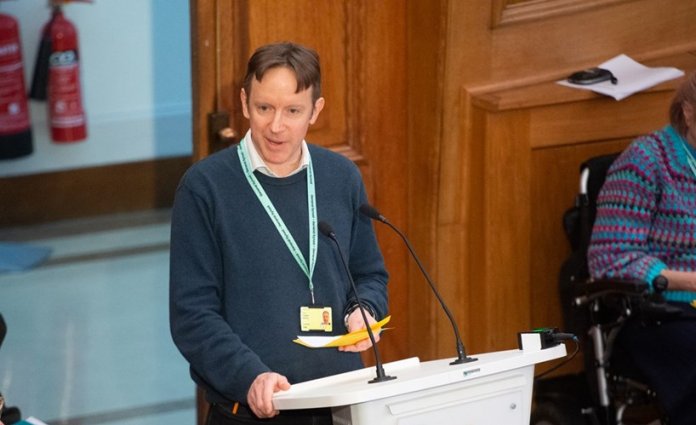What lessons might orthodox Anglicans in the Church of England learn from the defeats they suffered at the hands of the revisionist majority on General Synod last week?
During the Living in Love and Faith (LLF) debate on same-sex blessings at the February Synod in Westminster, the failure of an amendment moved by the Revd Charlie Skrine was unfortunately predictable.
The Rector of All Souls Langham Place, the conservative evangelical flagship in central London, wanted Synod to back ‘a settlement based on legally secure structural provision’ for opponents of same-sex blessings. Under this scheme, churches could vote to come out of the oversight of bishops who support same-sex blessings and instead join a parallel structure led by orthodox bishops. That would allow them to retain their buildings, which they would lose if they left the Church of England.
Skrine’s amendment fell in a vote in all three Houses of Synod with eight bishops for it and 24 against; 78 clergy for and 98 against; and 81 laity for and 100 against. The revisionist majority on Synod do not want no-go areas for their ‘progressive’ ideology in the established Church. They want the ability to capture churches if possible.
Skrine’s amendment was doomed from the start. After Synod, I contacted All Souls with a question for Skrine – did he know his amendment would fail, given the clear revisionist majority, but did he have an objective in moving it that was not obvious to an outside observer like me? Perhaps there was a clever strategy behind it that I have not been able to work out. I have not yet had a response.
But as far as I can see the failure of Skrine’s amendment has strengthened the hand of the revisionist majority in the House of Bishops. They now have a mandate from Synod to resist the creation of a parallel structure for traditionalists.
A defeated amendment does not of course mean that the mover did the wrong thing. Julie Maxwell’s lost amendment to ‘affirm the value of marriage, especially when loving, as providing the most stable and permanent environment for bringing up children’ in the debate on the Love Matters report by the Archbishops’ Commission on Families and Children very arguably made a powerful statement. The same could be said of Ed Shaw’s lost amendment in the LLF debate which tried to get Synod to acknowledge that orthodox Anglicans cannot ‘simply agree to disagree’ over sexual morality.
But perhaps the lesson orthodox Anglicans can take away from Skrine’s lost amendment, which seems to have played into the hands of revisionist power-brokers, is this: a good clergyman does not necessarily make a good Synod politician.
Skrine, who became Rector of All Souls in 2021 while in his mid-40s, is clearly a very good clergyman. He is responsible for a large staff team serving a diverse church with multiple congregations. If he was not a gifted Bible teacher and Christian communicator with significant people skills, his ministry at a church like All Souls would have unravelled by now.
But he does not appear to be a very good synodsman. Observing him in action over several Synods, I would suggest he turns on the charm to revisionists, particularly bishops, when he should be oppositional and goes on the offensive, as he did with his doomed amendment, when he would do better to maintain a dignified silence.
Skrine and his fellow conservative evangelical clergy in London might be advised to find amongst their number a minister who is good at synodical politics.
He (and in that constituency he would be a male vicar) may not be the minister of a large church; he would probably not be because the skills he has do not necessarily make for a ‘successful’ clergyman. But he is a good opposition politician and that is what traditionalists need at Synod in the teeth of the revisionist majority.
The big London conservative evangelical churches would need to back him to the hilt. The revisionists would need to know that when he gets up at Synod he speaks for large and growing churches with significant numbers of young people in them.
Skrine might be advised not to stand again for Synod in the 2026 elections giving him and his colleagues two years to find the right man to replace him. But they would also need to face the possibility that the right man might well have left the Church of England by then.
Julian Mann is a former Church of England vicar, now an evangelical journalist based in the UK.










